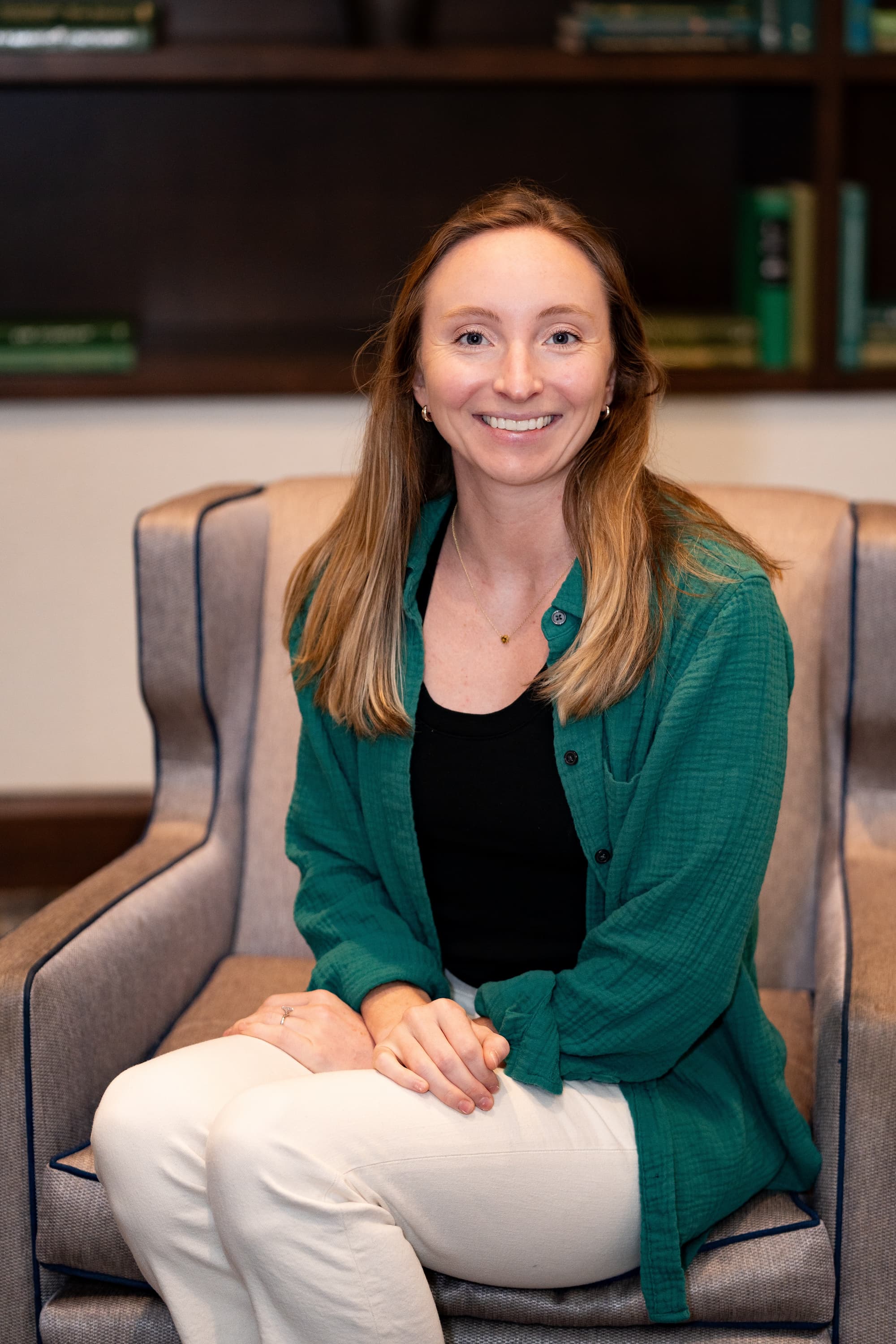First, tell us a little about yourself. 
This is my first year at UNT! Having spent all my life in Wisconsin, I made the move
to Texas just a few months ago. I graduated earlier this year from UW-Madison’s Rehabilitation
Counselor Education Ph.D. program – my third degree from UW!
Why did you choose to study rehabilitation counseling?
When I started my college journey, I knew I wanted to support individuals with disabilities
and planned to go into occupational therapy. I took a few electives including biopsychosocial
aspects of disabilities, and I thought it was fascinating. The instructor discussed
the Rehabilitation Psychology undergraduate major, and I immediately showed up to
their office hours to learn more. They told me about the Rehabilitation Counseling
master’s program and all the various contexts I could support disabled individuals
in, and I was sold.
What are your main areas of research, and why did you choose those specific areas?
My main area of research interest is reproductive health access for individuals with
disabilities. When working as a rehabilitation counselor, I found myself having a
lot of interactions with clients who had reproductive-related concerns that I didn’t
have the training or education to address. For example, I worked with pregnant and
parenting women who were managing substance use disorders and fighting a lot of healthcare
stigma. It helped inspire my dissertation research on pregnancy experiences for individuals
with fibromyalgia, which highlighted the lack of healthcare understanding of chronic
illness, and the need for increased social support. In addition to reproductive areas,
my other research interests include clinical supervision, ethical practice, and multicultural
education.
What do you enjoy most about teaching?
I was one of those people who loved school. Academia provided me so many spaces for
discussion, learning, and community. As an instructor, I love creating that space
for students. I love watching students develop their skills and advance our field.
I find myself learning just as much from them as they might be learning from me. That’s
such a privileged spot to be in.
What do you hope your students gain from your courses?
I hope students feel comfortable and prepared to dive into the field of rehabilitation
counseling after taking my courses.
What did you do before pursuing a career in academia, and why did you decide to pursue
teaching instead?
I worked as a rehabilitation counselor for several years in higher education settings.
I held several roles in a higher education disability resource center, including approving
academic accommodations and managing assistive technology needs. The times I was most
excited about my job were when I was engaging in campus-wide presentations on disability
and accessibility. I knew returning to school for my Ph.D. in Counselor Education
so I could be a faculty member one day was the right move.
When you’re not teaching, what do you enjoy doing?
When I’m not teaching, I am trying to tire out my high-energy mini–Australian Shepherds
– Frankie and Millie! They love being outside when the weather permits, going for
hikes and walks with us.
Do you have any fun facts that others may not know about you?
I am a huge reader. I love reading books of any genre – romance, fantasy, mystery,
etc. In 2023, I read over 100 books and I’m on track to read that many in 2024, too!
I happily welcome any book recommendations!